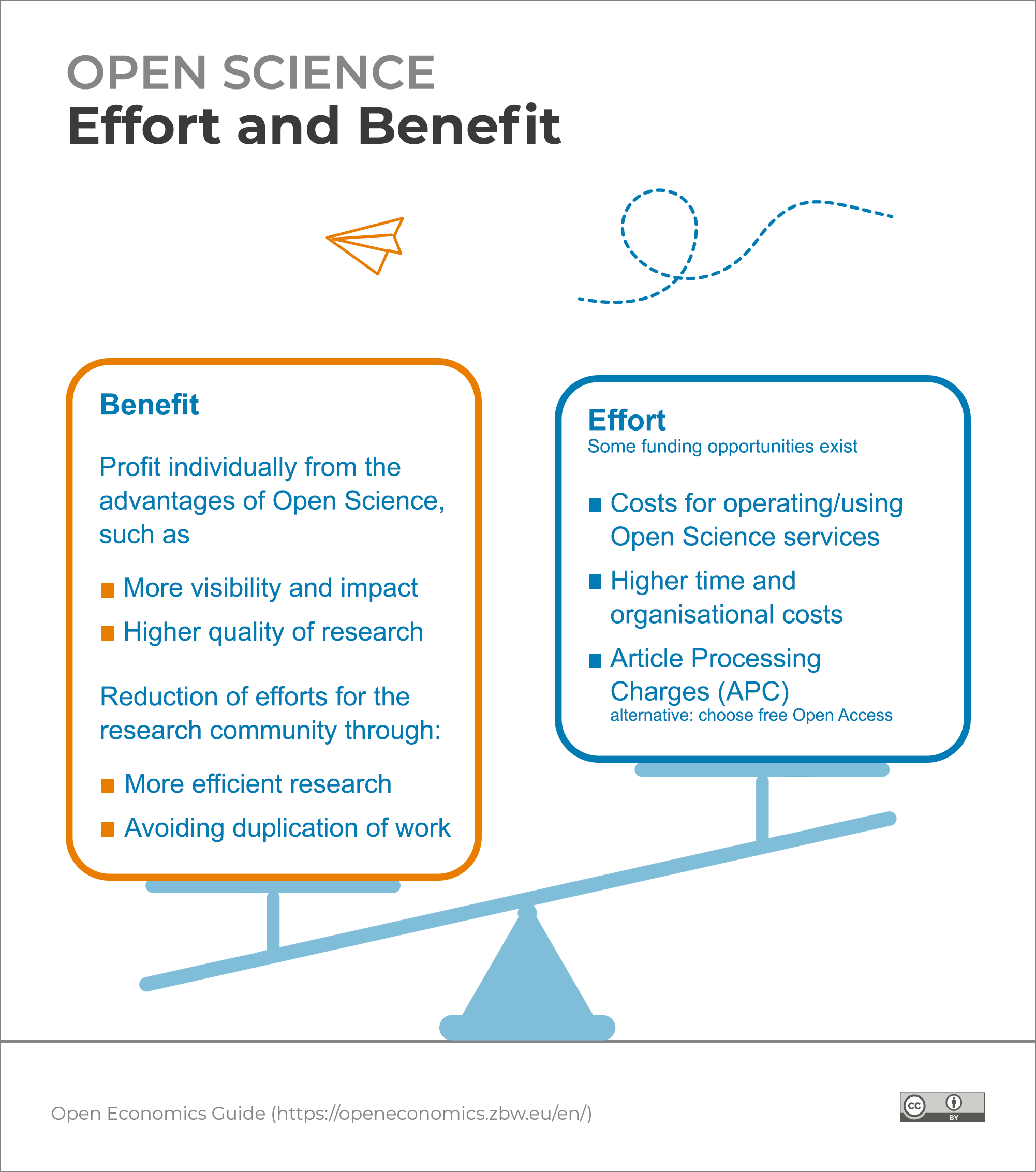Costs and Effort of Open Science
Open Science doesn’t need to cost a lot (of money) and should fundamentally be free-of-charge for individual users. If you are faced with paying a charge, there are possibilities to receive financial support. Practicing Open Science often means a greater expenditure of time and organisational effort, particularly in the early phase when you are still learning about it. For example, you need to compile and implement data management plans. These can however be budgeted for in applications for third-party funding. On the other hand, the benefits are also higher, because you can profit from the advantages of Open Science by giving your research work more visibility and raising its quality. Furthermore, Open Science also contributes to reducing expenditure because it makes research more efficient and helps to avoid duplication of work.
Generally, a distinction can be made between the costs for operating Open Science services and the costs for using it. Many services are free of charge for individual researchers if you disregard the occasionally high Article Processing Charges (APC) for Open Access publications in journals or as monographs for example. There are often funding opportunities for these, however, through corresponding publication funds of your own university and/or research institution or directly on the part of the funding institutions. In general, there are many opportunities to publish in Open Access that demand no financial contribution at all.
But naturally, costs are incurred for developing and operating Open Science services. Funding often exists for the initial set up of services and infrastructure. Either the ensuing continuing expenditure is financed by an organisation; for example the ZBW operates EconStor and CERN operates Zenodo. Or the expenditure must be born in another way.
For some non-commercial tools there are also institutional memberships, such as with ORCID. Research institutions then receive access to the API and can add publication entries for the researchers.
These are joined by publishers and/or commercial providers who offer free-of-charge services as well as chargeable services.
